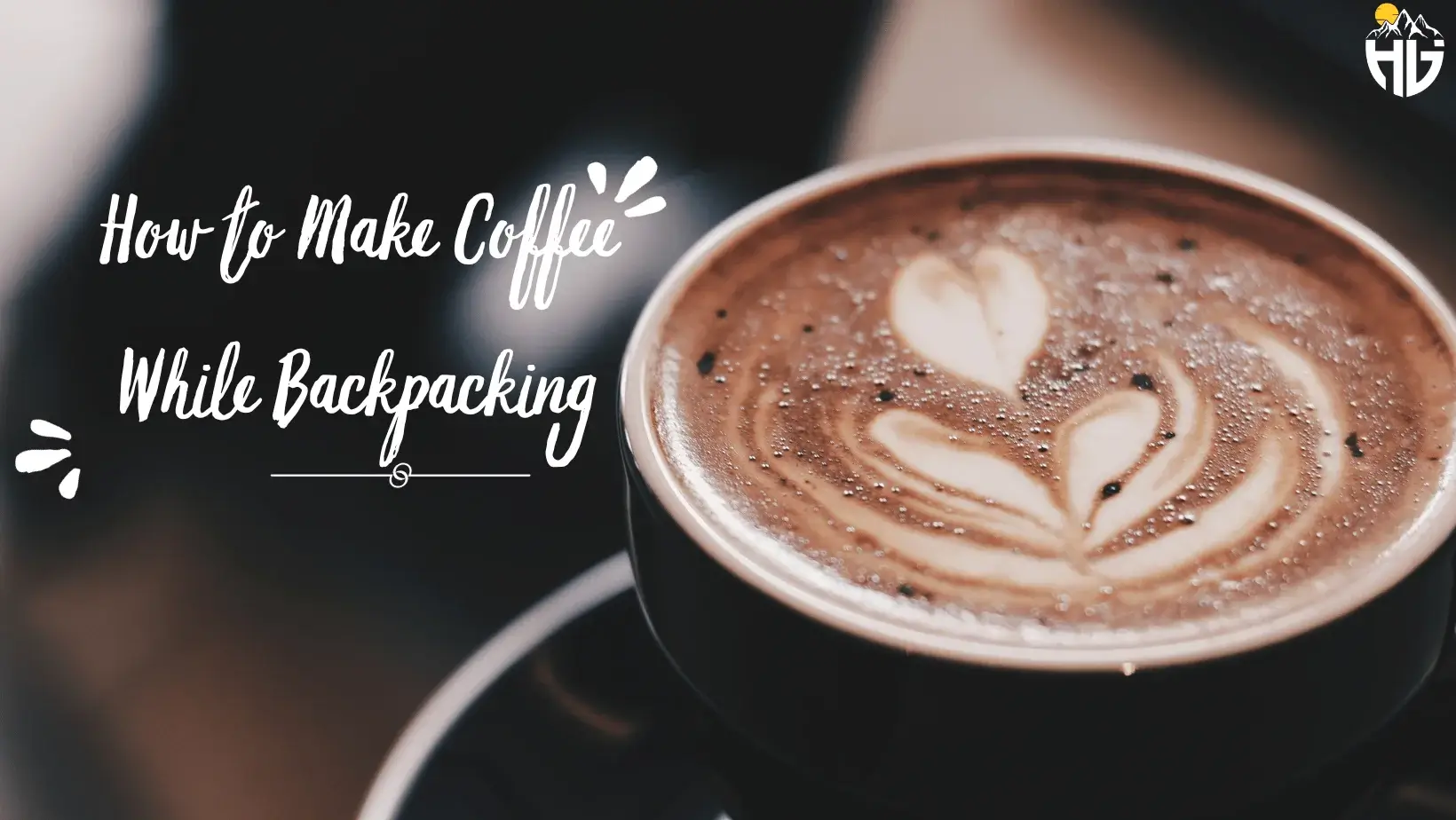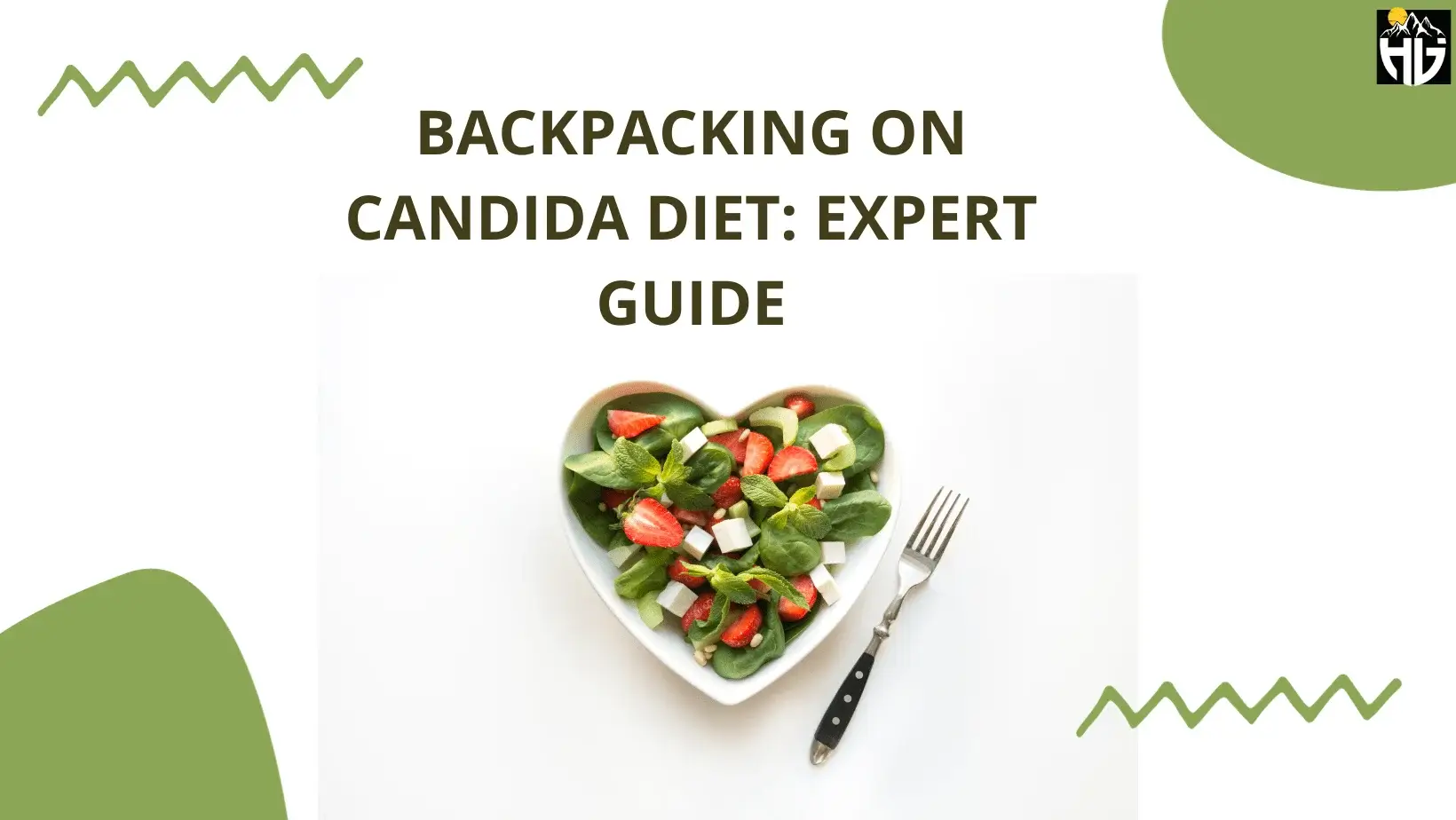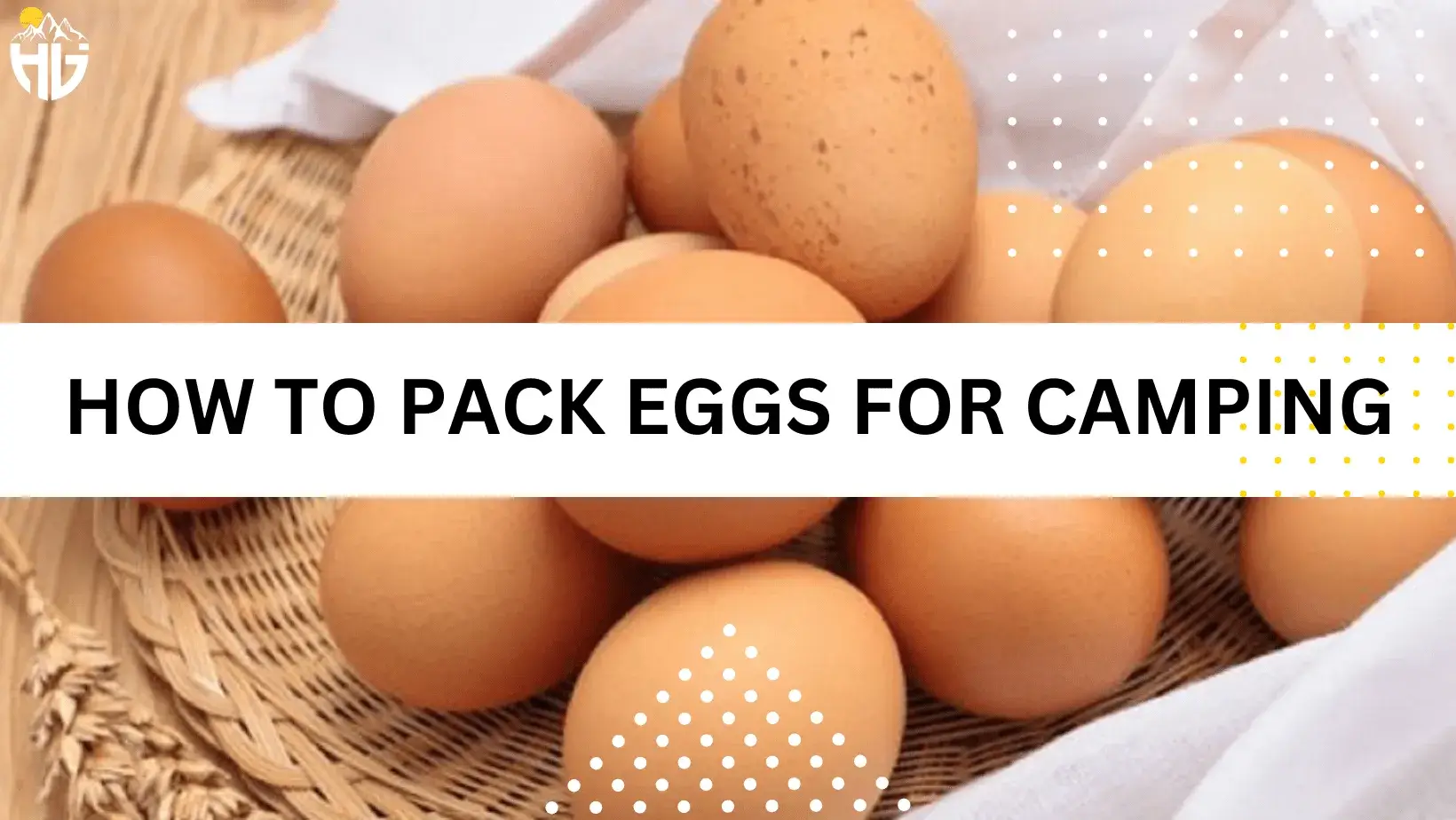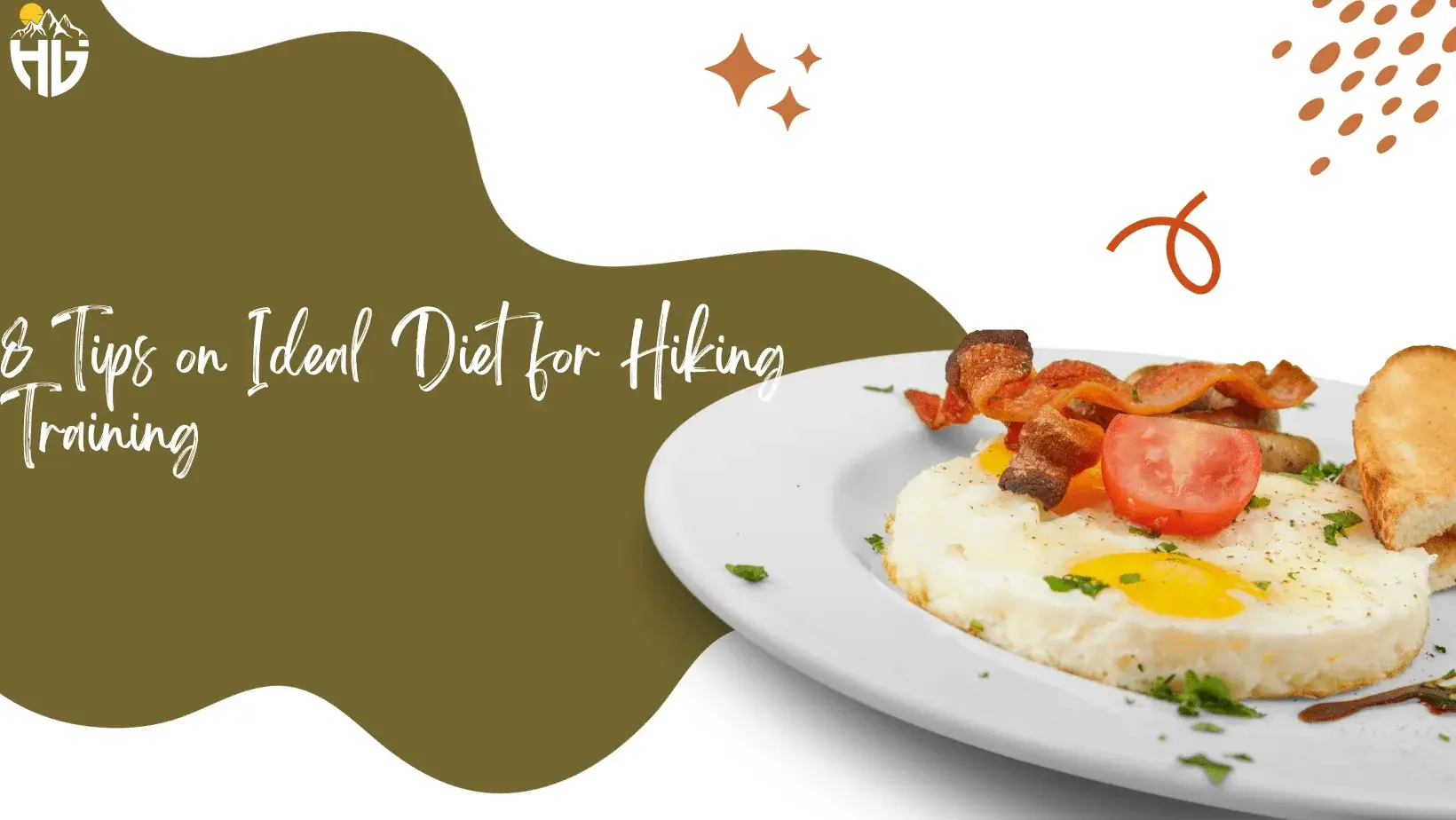What to eat before hiking?

Hello there! You’re in for a treat if you’re planning a hiking trip. However, before hitting the trail, ensure you’re properly fueled. Eat Proper nutrition before hiking, as it’s essential to ensure you have all the energy and stamina to complete your hike safely and comfortably.
Not only will the right pre-hike meal help prevent fatigue and exhaustion, but it can also enhance your overall performance and aid in muscle recovery.
In this article, we’ll look at the importance of nutrition before hiking and advise you on what to eat before you hit the trail to get the most out of your outdoor experience.
Whether you’re a seasoned hiker or just getting started, we’ve got you covered. So, let’s get this party started!
What to Eat Before Hiking? – Pre-Hike Meal & Snacks Ideas
Here are some suggestions for meals and snacks that hikers can prepare at home and bring along with them on the trail, as well as some ideas for meals and snacks that hikers can eat before they go hiking and foods that boost their energy that is ideal for hikers:
Meal Ideas to Eat For Hiking
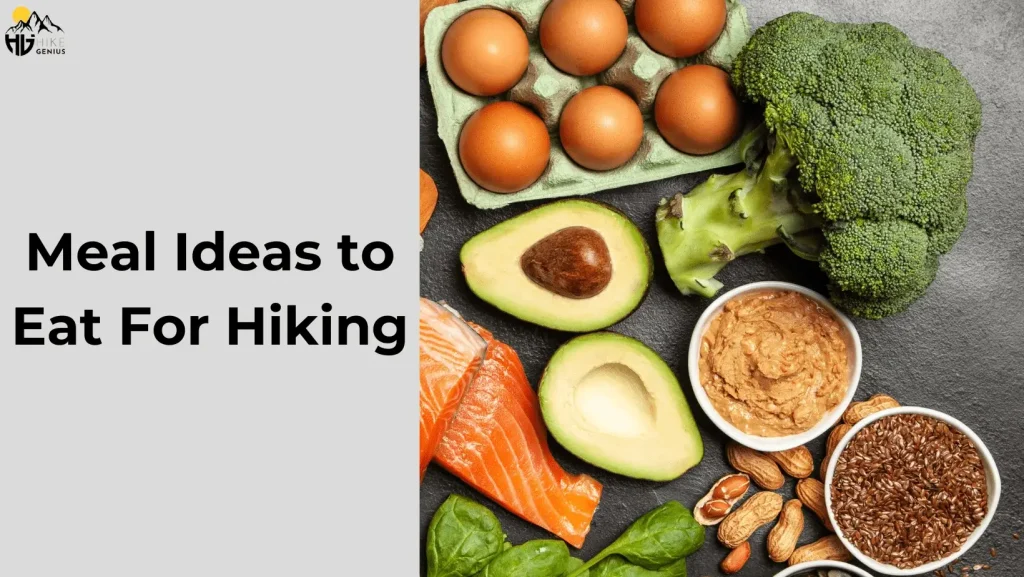
- Oatmeal with fruit and nuts
- Greek yogurt with berries and granola
- Whole grain toast with avocado and an egg
- Smoothie with fruit, yogurt, and nut butter
- Cooked rice bowl with roasted vegetables and chicken or tofu
- Quinoa salad with vegetables, beans, and a vinaigrette dressing
- Turkey or veggie burger with sweet potato fries
- Grilled chicken or fish with roasted vegetables
Snacks Ideas To Eat For Hiking
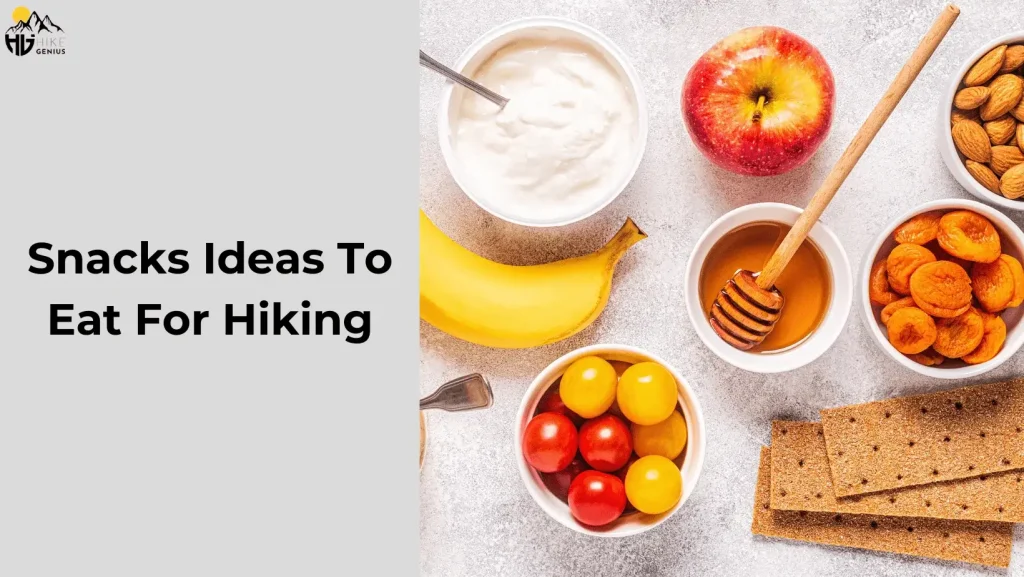
- Trail mix with nuts, seeds, and dried fruit
- Energy bars or protein bars
- Fresh fruit, such as apples, bananas, or oranges
- Vegetables, such as carrot sticks or cherry tomatoes, with hummus or nut butter
- Jerky or dried meat
- Cheese and whole grain crackers
- Peanut butter and jelly sandwich on whole grain bread
- Hard-boiled eggs
Nutritional Requirements To East Before Hiking
I promise you’ll have the best hiking experience if you fuel your body with the following nutrition:
Complex Carbohydrates – For mass-energy Before Hiking
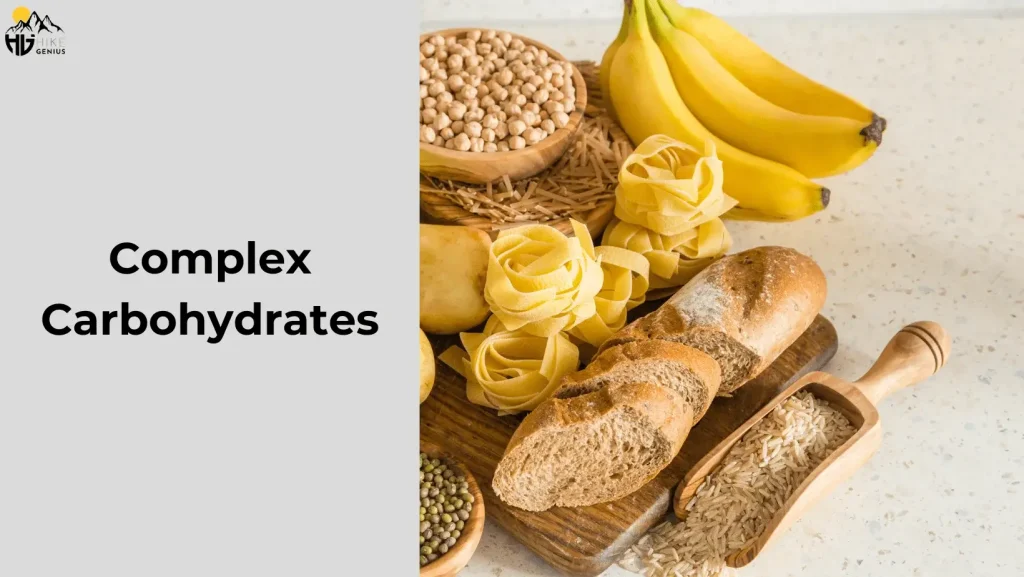
Carbohydrates are an essential nutrient for hikers because they provide the body with the energy it requires for physical activity. They are broken down into glucose, which the body uses as fuel.
Complex carbohydrates, such as whole grains, fruits, and vegetables, are ideal for hikers because they provide sustained energy throughout the journey. Carbohydrate-rich foods include
- Oatmeal
- Quinoa
- Brown Rice
- Bananas
- Sweet potatoes
Protein – For rapid muscle recovery After Hiking
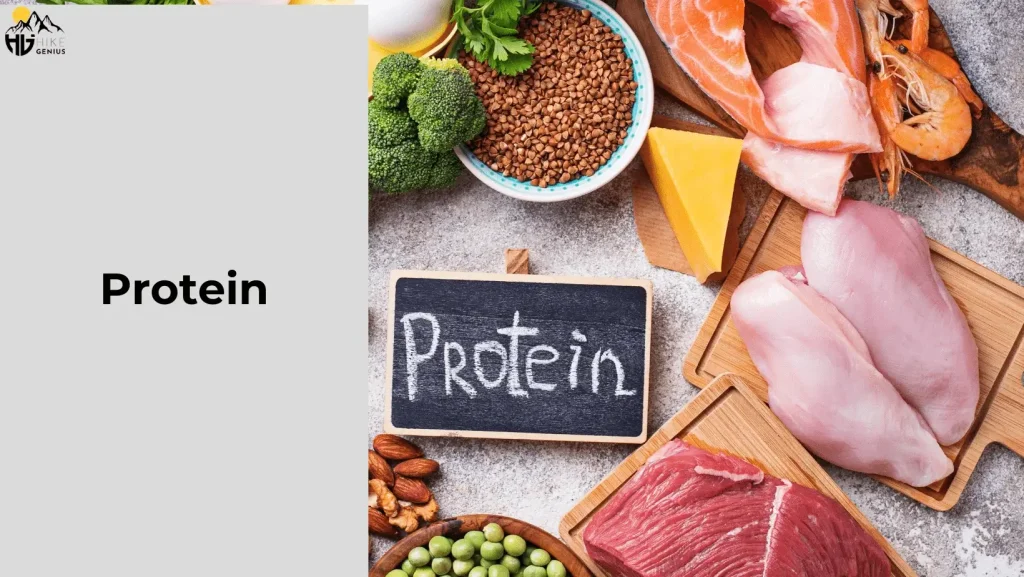
Because muscles are stressed and can be damaged during a hike, eating enough protein is critical for recovery. Protein is also necessary for a healthy immune system.
- Lean meats
- Fish
- Eggs
- Beans
- Nuts
Healthy Fats – To maintain the body temperature During Hiking
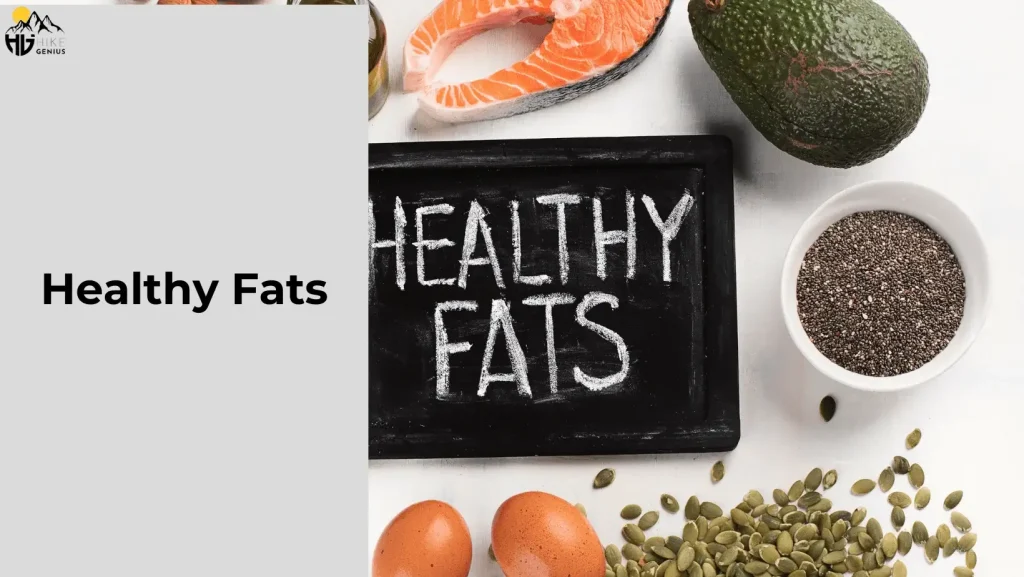
Healthy fats are also crucial for hikers because they give the body energy and help keep the body at the right temperature.
Fats also help vitamins and minerals get to all body parts. Fats like avocados, nuts, and seeds and fatty fish like salmon are suitable for hikers.
In short, hikers should eat a balanced diet before hiking, with carbs, proteins, and healthy fats to give their bodies the energy and other nutrients they need to do their best.
- Whole grains
- Fruits and Vegetables
- Lean Meats
- Fish
- Eggs
- Beans
- Nuts
- Avocados
- Seeds
- Fatty Fish
Also Read: How to Make Coffee While Hiking?
Timing and Quantity of Pre-Hike Meal
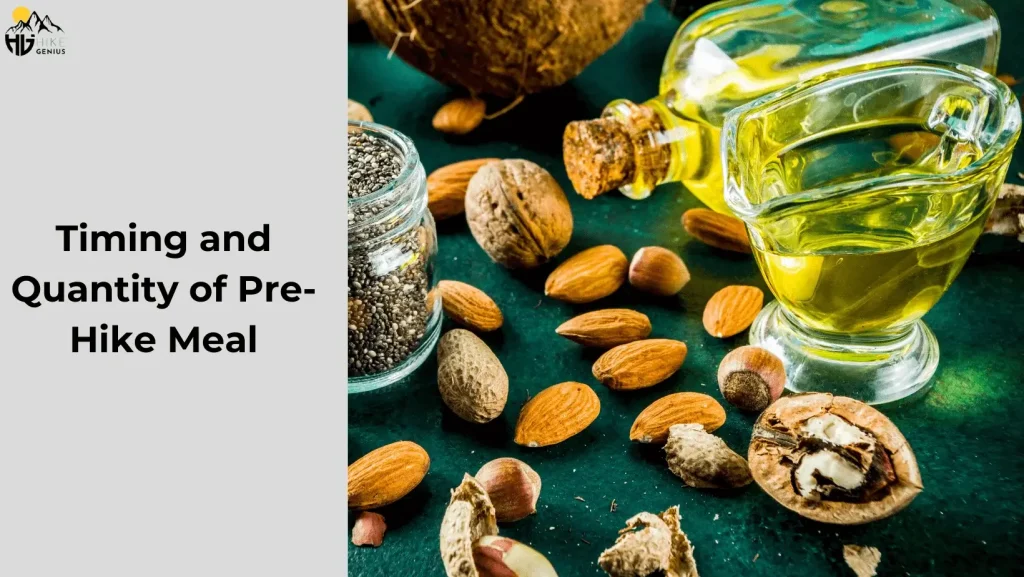
This section will explain the timing and portion of a meal, as overeating at the wrong time can lead to an unpleasant hiking experience.
Timing
Eating before a hike is essential because it can change how much energy you have for the hike. It’s best to eat a meal at least one to two hours before you start hiking.
This will give your body enough time to digest the food and turn it into energy you can use on the hike. If you eat too close to the start of the hike, you might get a stomach ache or muscle cramps.
Portion size
Depending on a person’s size, age, and level of activity, the right size of meals before a hike can vary. But as a general rule, the meal should be well-balanced and have enough calories to keep the hiker’s energy up.
Try to eat a meal with between 500 and 800 calories, depending on your needs.
A typical serving size might be half a plate of complex carbs, like whole grain pasta or brown rice, a quarter of a plate of protein, like grilled chicken or tofu, and a quarter of a plate of vegetables, like roasted or steamed broccoli, carrots, or green beans.
Importance of Hydration Before Hiking
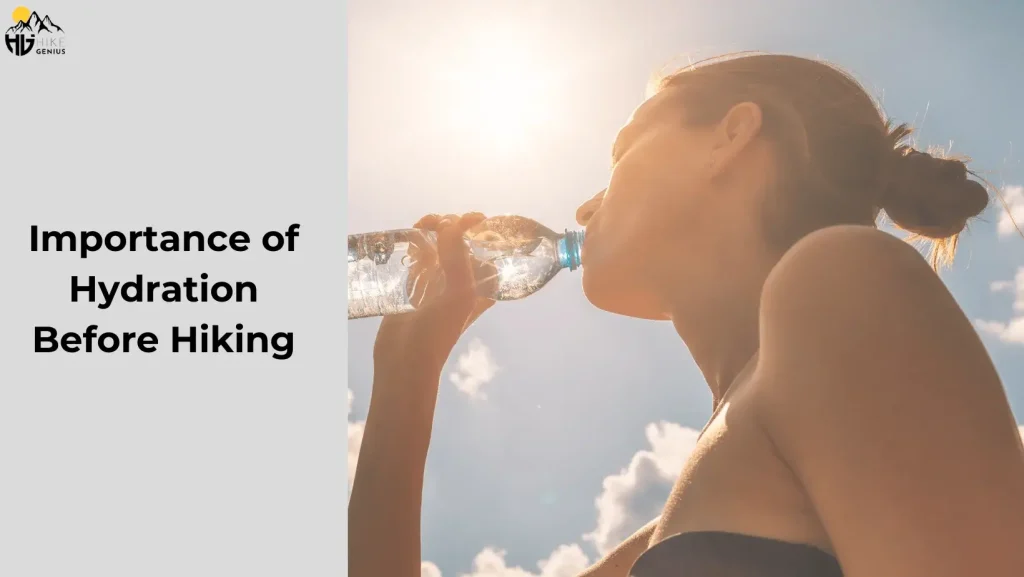
Hikers need to drink enough water to stay hydrated because water is necessary for many body functions, such as keeping the body’s temperature stable, getting nutrients to the cells, and getting rid of waste.
Dehydration can make you tired, give you headaches, make you feel dizzy, and in the worst cases, cause heat exhaustion or heat stroke. Hikers are more likely to get dehydrated because they work hard and are out in the elements.
Tips for Staying Hydrated While Hiking
- Drink water often during the day before the hike, and keep drinking water while on the trek.
- Bring a water bottle or hydration system that is easy to get to and drink from while hiking.
- Drink small amounts of water often instead of big gulps.
- Notice the signs of thirst and drink water before you feel thirsty.
- Stay away from or drink less of drinks like alcohol and coffee, which can make you lose water.
- Consider drinking drinks with added electrolytes, especially on longer or harder hikes, because they can help replace the electrolytes and minerals you lose.
Suitable drinks To Use Before hiking

Hikers should drink mostly water to stay hydrated. But there are other good choices for people who like flavored drinks or have been hiking for a long time.
Sports drinks for Energy Before Hiking
It can’t take the place of water, but it does have some advantages over water. They have electrolytes and carbs that help keep your energy up and keep you from dehydrating.
Coconut water
Coconut water is also a good choice because it has potassium and electrolytes in it naturally.
Don’t forget to drink often while hiking; drink more fluids to compensate for the water you lose through sweating if it’s hot or dry. Hikers can ensure they have enough energy to finish their hike safely and comfortably if they stay hydrated.
Conclusion
- For a successful and enjoyable hiking trip, you must eat and drink the right things and stay hydrated.
- Carbohydrates, proteins, and healthy fats are essential nutrients that give the body the energy it needs while hiking.
- Meal ideas for before a hike were given, along with the right amount and when to eat it.
- Hikers were told about the importance of staying hydrated and advised on how to do so.
Overall, hikers can ensure they have the energy and stamina they need to finish their hike safely and comfortably by putting proper nutrition and hydration first.
Frequently asked questions
Now, here are some questions that we often get asked by our potential readers.
Meal suggestion for a 7 mile hike?
On the hike, you should avoid eating heavy, fatty, sugary foods, or spicy foods because they can cause indigestion and slow you down. Eat your pre-hike meal one to two hours in advance to give your body time to digest.
- Here are some suggestions for a meal before 7 mile hike:
- Oatmeal with nuts, fruit, and yogurt
- Scrambled eggs with whole grain toast and avocado
- Whole grain pasta with fresh vegetables and grilled chicken
- Grilled salmon with quinoa and roasted vegetables
Is hiking with an empty stomach that bad?
Hikers can experience exhaustion, dizziness, and weakness if they hike on an empty stomach. A deficiency in nutrition can cause concentration problems and lead to a drop in blood sugar, which in turn weakens muscles.
What should I eat for dinner before a long hike day?
Before a long hike, eat a nutritious, easy-to-digest dinner to fuel your body. Pre-hike dinner ideas:
- Lean protein: Include lean protein sources such as chicken, fish, tofu, eggs, beans, or protein powder. Protein will help to repair and build muscle tissue. Make sure to add enough rest to let your body recover as well.
- Complex carbohydrates: Eat complex carbohydrates such as whole grains, fruits, and vegetables to provide your body with a steady supply of energy.
- Healthy fats: Incorporate fats into your meal such as nuts, seeds, avocado, or olive oil. These foods will provide your body with sustained energy and help to keep you feeling full.
- Fiber: Include fiber-rich foods such as whole grains, fruits, and vegetables to help regulate digestion and keep you feeling full.
What should I eat one hour before a long hike?
To boost energy before a long hike, eat something light and easily digestible an hour beforehand. One hour before a long hike, eat these:
- Fresh Fruits: Bananas, apples, and berries provide quick energy.
- Yogurt: Add nuts or dried fruits provides protein, carbohydrates, and healthy fats.
- Energy bars: Granola bars or energy bars with carbs and protein provide quick energy, recover tired muscles, and are easy to carry on a hike.
- Smoothies: Fruit, low-fat milk, or yogurt smoothies provide energy and hydration.

